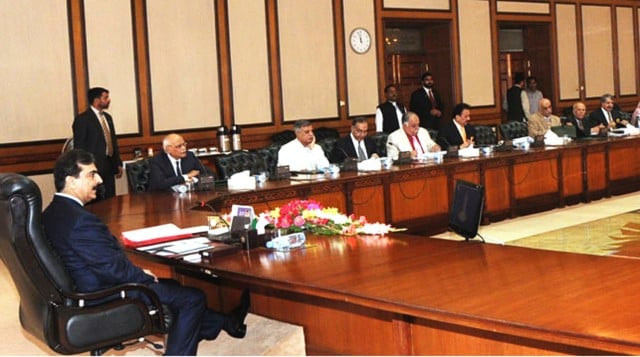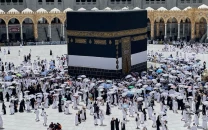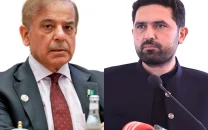PPP eyes deal to shore up government
Leaders of PPP appear confident of reaching a deal to prevent MQM from joining the opposition.

"One should not waste time when there are problems among friends. We are in contact with MQM and things will return to normal pretty soon," Information Minister and PPP lawmaker Qamar Zaman Kaira told reporters.
He conceded that there had been a "delay" in addressing its partner's political concerns, which he attributed to Monday's third anniversary of the assassination of former PPP prime minister Benazir Bhutto. "But we will sit together and address their reservations," said Kaira.
"The government wants to be in good terms with all its allies in line with its policy to bring on board all political forces to face the enormous challenges facing the country."
In a move that sent tremors through Pakistan's fractious world of politics the Muttahida Qaumi Movement (MQM) said it was leaving the federal cabinet. Farooq Sattar, minister for overseas Pakistanis, and ports and shipping minister Babar Ghauri sent letters of resignation to the presidency, but stopped short of quitting the government and joining the opposition.
MQM has been at odds with the PPP over political violence in Karachi, tax reforms demanded by the International Monetary Fund, corruption and inflation.
With the PPP's coalition numbering 185 seats in the 342-member national assembly, just 13 more than the 172 required for a majority, any withdrawal of MQM's 25 lawmakers could bring down the government.
Just two weeks ago, the country's most prominent religious party walked out of the government, costing the coalition the support of seven lawmakers. Zardari held overnight crisis talks with Interior Minister Rehman Malik and close ally Qaim Ali Shah, chief minister of southern Sindh province, and by Wednesday PPP leaders appeared confident that a deal could be cut.
One prominent PPP member told AFP, on condition of anonymity, that Malik and Shah were in contact with MQM and that the PPP was "confident that MQM will remain in government with more influence and share in the coalition." MQM spokesman Wasay Jaleel denied contacts but left open the door to a deal.
"Our doors are open for dialogue. We want to settle the problems amicably. We are not stubborn," he told AFP. Neither did the party back a call from the country's most prominent Islamic politician, who took Jamiat Ulema-e-Islam Fazl (JUI-F) out of government on December 14, for Prime Minister Yousuf Raza Gilani to resign.
"Our demands relate to the government's action to end increasing corruption and inflation. We don't demand the removal of the prime minister," Jaleel said.



















COMMENTS
Comments are moderated and generally will be posted if they are on-topic and not abusive.
For more information, please see our Comments FAQ